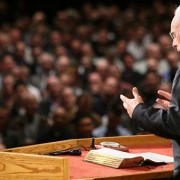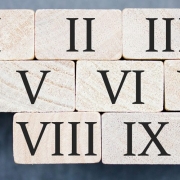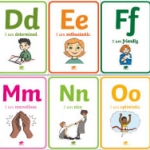The biblical view from the Tower of Babel
This article originally appeared on September 15, 2022 at Baptist News Global.
Few stories in the Bible highlight the complexities of deconstruction and the way it divides us into speaking very different theological languages like the Tower of Babel in Genesis 11.
“What did Babel’s builders do wrong? Why did God punish them as he did? And what is the story’s message?”
These were the questions posed last month on Twitter by Ari Lamm, a religious historian who focuses on the relationship between religions across time. He also is chief executive of Bnai Zion, a 114-year-old organization that focuses on “Accelerating Israel’s growth and perpetuating social impact and peaceful coexistence through partnerships and meaningful projects with our friends and allies around the world.”
 Lamm utilized his understanding of the Hebrew language in a thread that reached nearly 2,200 words and brought together conservatives and progressives alike.
Lamm utilized his understanding of the Hebrew language in a thread that reached nearly 2,200 words and brought together conservatives and progressives alike.
Fascinating, yet almost fundamentalist
The responses to his thread mostly were positive.
Conservative commentator Glenn Beck said, “This thread about the #towerofbabel is so spot on and a lesson to us all.”
Conservative author David French added a paragraph in one of his articles about it: “It’s not often that I’m going to recommend a Twitter thread, but this series of tweets by Rabbi Dr. Ari Lamm is absolutely fascinating. It’s about how the nuances of the Hebrew language help us better understand the Tower of Babel.”
Graham McFarlane of the London School of Theology tweeted, “Perhaps the best and most interesting demonstration of why knowledge of biblical languages is not only so important but also why it makes for much more interesting reading of the texts. Long thread but oh so worth the time to read to the end.”
Even some non-religious people were saying the thread was wonderful.
But not everyone was fully on board.
Joel Baden, a professor of Hebrew Bible at Yale, responded: “This thread — which is very well done — is obviously getting a lot of love. I don’t want to be churlish about it, but … it’s not ‘right,’ per se. This is one (very Jewish) mode of reading and interpretation, but it is making a claim of ‘correctness’ that’s almost fundamentalist.”
Is it any wonder that Beck read Lamm’s thread through his lens as an anti-government conservative, French read it as an expert in the use of language, McFarlane read it as a demonstration of knowledge, non-religious people read it through their own value lenses, and Baden read it as a Hebrew Bible professor?
“A story about people coming together and then being scattered provides a fascinating insight into how biblical scholarship brings us together and then scatters us into very different theological languages.”
The unmistakable reality here is that we all interpret what we read through our own lenses and with our own questions. So in an ironic twist, Lamm’s take on a story about people coming together and then being scattered provides a fascinating insight into how biblical scholarship brings us together and then scatters us into very different theological languages.
How literalists believe the Bible engages with history
In Lamm’s original Babel thread, he said, “It’s hard to overstate the historic importance of the Babel narrative.”
While most people understand that the Bible engages to some degree with human history, rather than simply being a completely made-up myth, the question we disagree about is how.










Leave a Reply
Want to join the discussion?Feel free to contribute!